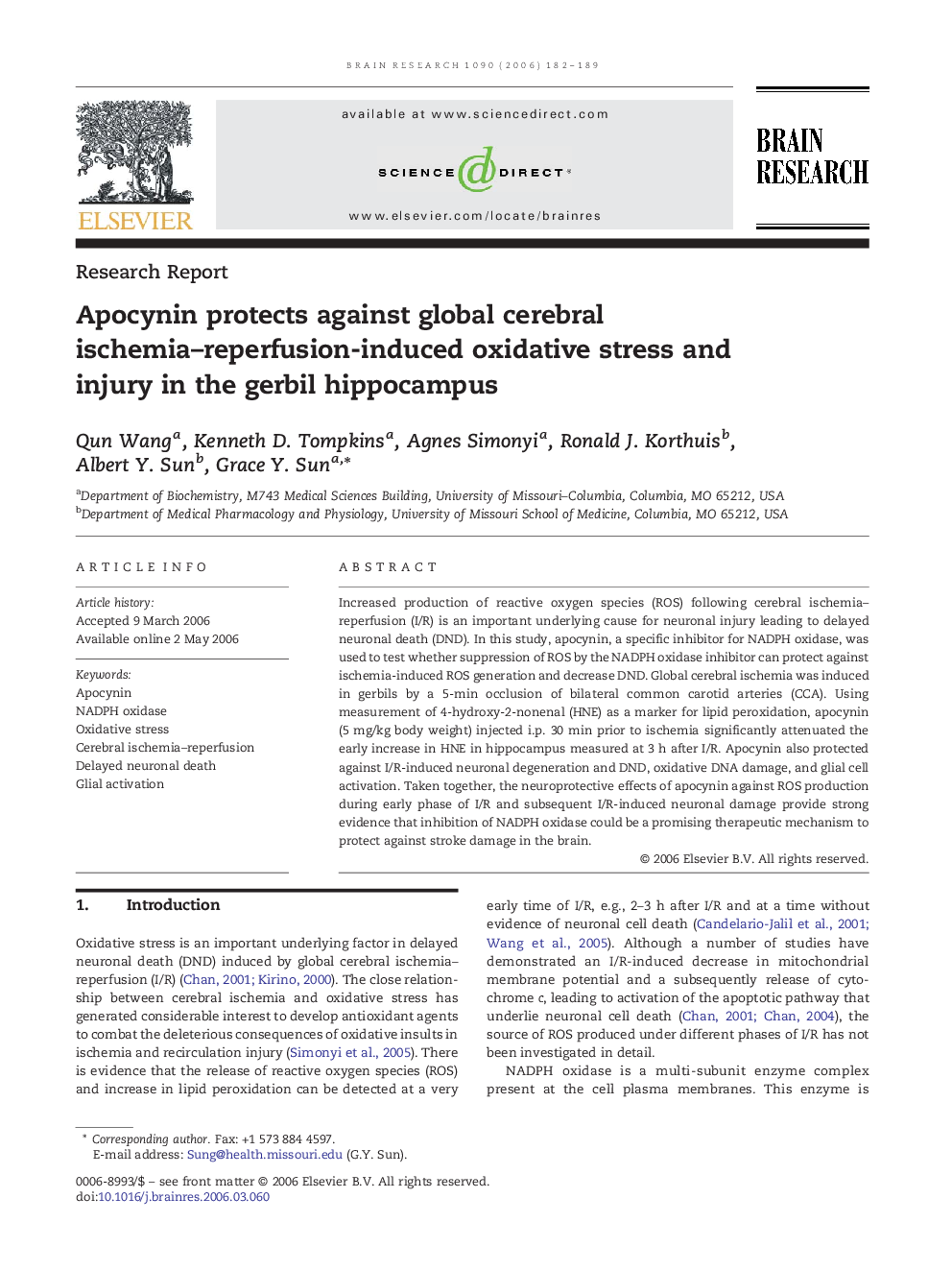| Article ID | Journal | Published Year | Pages | File Type |
|---|---|---|---|---|
| 4332875 | Brain Research | 2006 | 8 Pages |
Increased production of reactive oxygen species (ROS) following cerebral ischemia–reperfusion (I/R) is an important underlying cause for neuronal injury leading to delayed neuronal death (DND). In this study, apocynin, a specific inhibitor for NADPH oxidase, was used to test whether suppression of ROS by the NADPH oxidase inhibitor can protect against ischemia-induced ROS generation and decrease DND. Global cerebral ischemia was induced in gerbils by a 5-min occlusion of bilateral common carotid arteries (CCA). Using measurement of 4-hydroxy-2-nonenal (HNE) as a marker for lipid peroxidation, apocynin (5 mg/kg body weight) injected i.p. 30 min prior to ischemia significantly attenuated the early increase in HNE in hippocampus measured at 3 h after I/R. Apocynin also protected against I/R-induced neuronal degeneration and DND, oxidative DNA damage, and glial cell activation. Taken together, the neuroprotective effects of apocynin against ROS production during early phase of I/R and subsequent I/R-induced neuronal damage provide strong evidence that inhibition of NADPH oxidase could be a promising therapeutic mechanism to protect against stroke damage in the brain.
